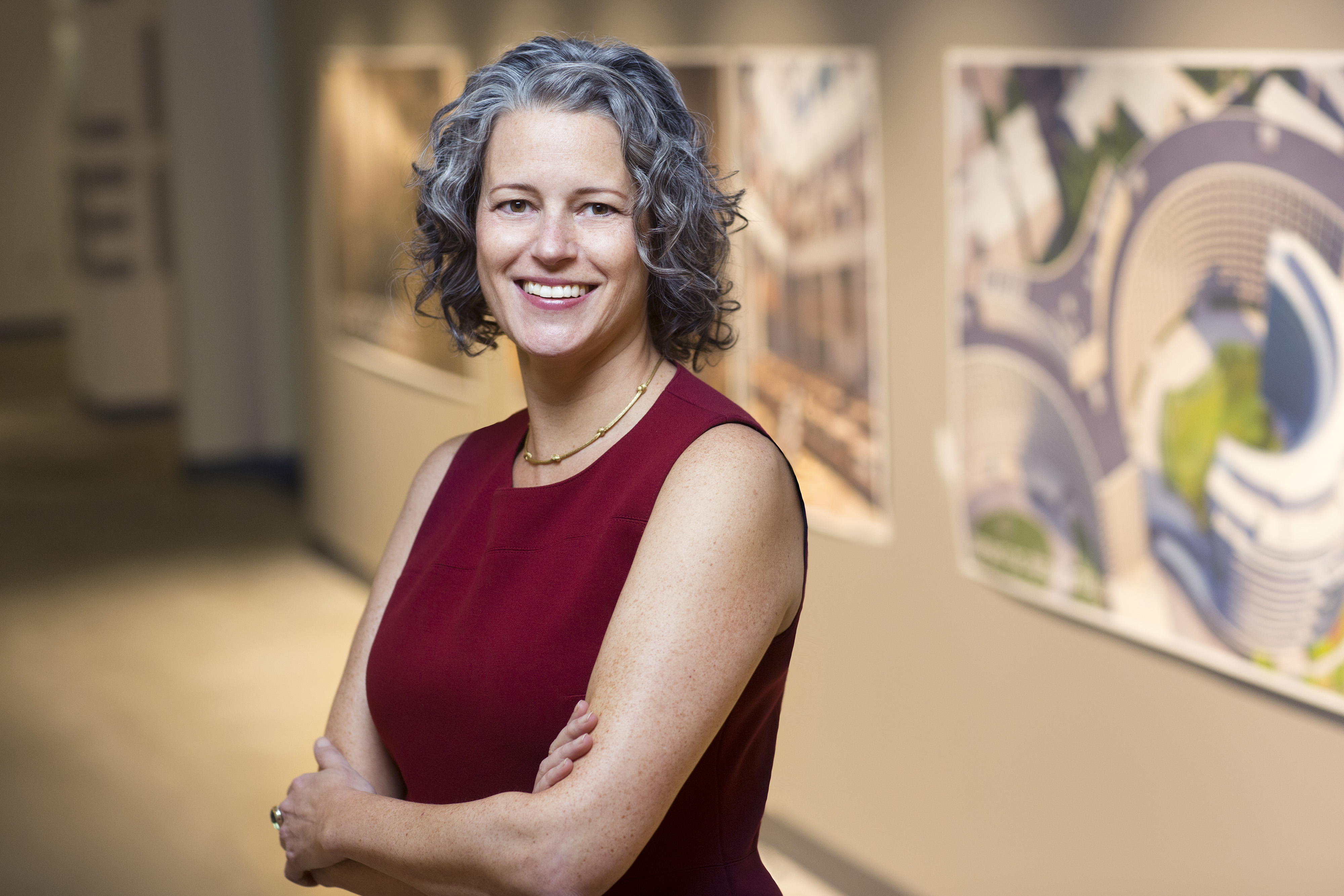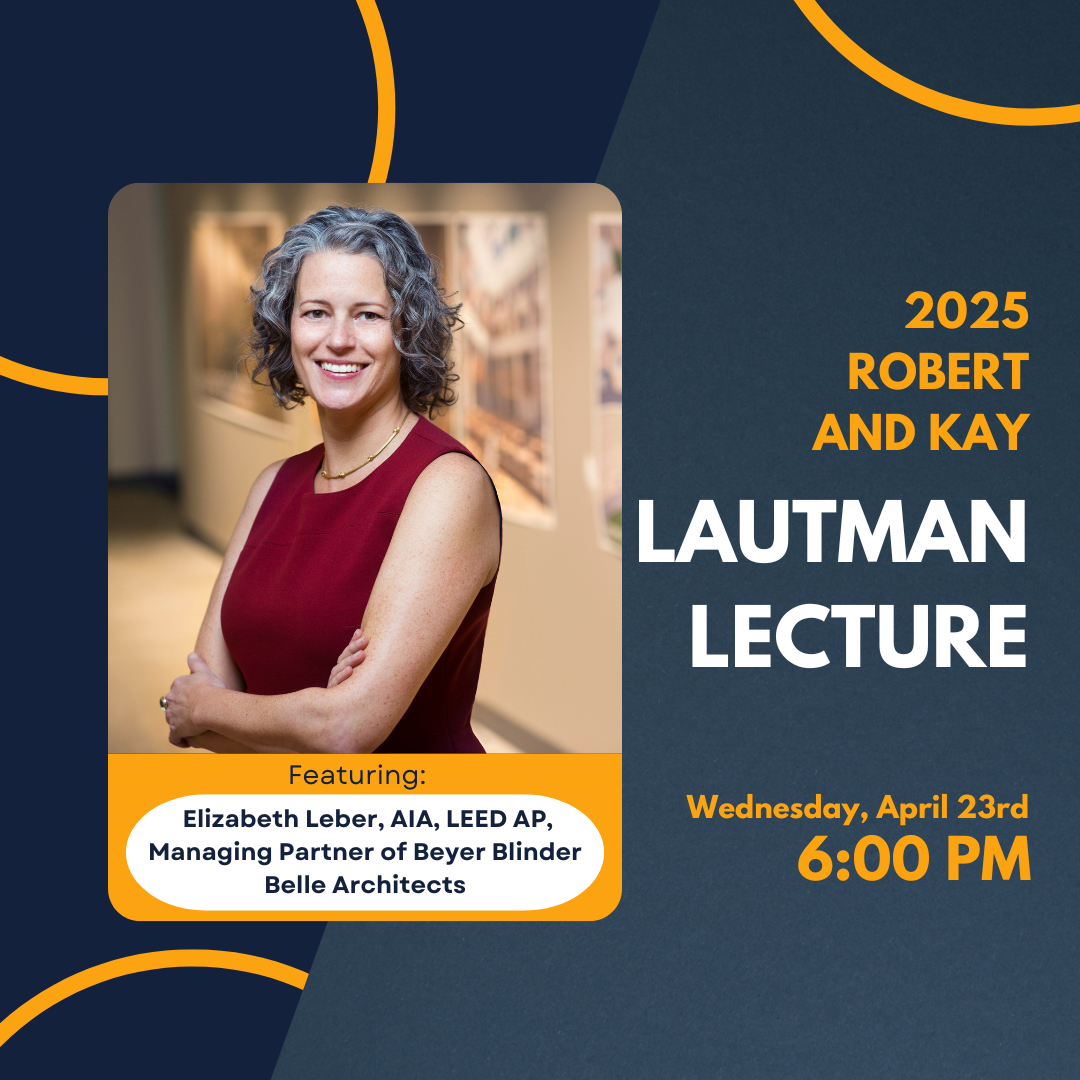-
Date
Wednesday, April 23 2025
-
Time
6:00pm - 8:00pm
-
Location
Join us for an inspiring evening at this year’s Lautman Lecture, featuring Elizabeth Leber, AIA, LEED AP, Managing Partner of Beyer Blinder Belle Architects & Planners.
Great design doesn’t just shape buildings—it transforms communities and lives. In this thought-provoking talk, Elizabeth will explore how architecture and leadership intersect to create spaces that honor the past while embracing the future. She’ll share real-world insights into revitalizing historic places, making cities more livable, and leading teams with vision and purpose.
Beyond architecture, this lecture will offer valuable lessons on leadership, innovation, and making bold career choices—insights that resonate across industries. Whether you’re passionate about design, history, urban development, or simply curious about how great spaces come to life, this event promises to be an engaging and eye-opening experience.
Don’t miss this opportunity to gain a fresh perspective on how the built environment shapes our world and how strong leadership drives meaningful change.
The Robert and Kay Lautman Lecture is a new annual program to honor two strong proponents of the Washington Architectural Foundation’s work. This program brings nationally and internationally renowned figures in the fields of architecture and art to lecture on the intersection between architecture, design, and art. The annual event will be recorded and made available to a wider audience online. We believe this special annual lecture will have the added benefit of highlighting WAF’s work in the community.
Robert Lautman was a renowned architectural photographer who served on WAF’s board. His wife Kay was well known in DC’s philanthropic community.
2025 Speaker:

Elizabeth R. Leber, AIA, LEED AP, Managing Partner of Beyer Blinder Belle Architects & Planners, is dedicated to advancing mission-based institutions through forward-looking architecture and planning projects. Guided by her astute and inquisitive nature, Liz excels at extracting the core objectives of her clients and their stakeholders and translating the collective needs and mission of institutions into creative architectural solutions. Liz’s clients include leading schools such as Harvard University, Columbia University, and Philips Exeter Academy; and not-for-profit institutions including the New York Public Library and the 92nd Street Y.
Liz applies these same skills and energy to her role as Managing Partner of Beyer Blinder Belle. Her position affirms the firm’s successful transition to a third generation of leadership and ensures BBB’s long-term strategic vision and sustainability. Liz has spearheaded initiatives focusing on firm-wide culture including greater transparency, collaboration, and inclusion, and is leading the firm’s four-year strategic planning process. Her role also includes oversight of the firm’s business development strategy, including expansion in targeted sectors and geographic markets that align with the firm’s core expertise.
Liz is a board member of Urban Green Council and Open House New York, and is a member of Harvard’s Design Advisory Council.
Learning Objectives:
- Understand the Impact of Transformational Design on Institutions: Participants will learn how to approach architectural projects with a focus on rehabilitation and adaptive reuse, ensuring that transformation respects history and addresses future needs. Case studies from major projects will illustrate this balance.
- Explore the Role of Leadership in Shaping Architectural Practice: Attendees will gain insights into how leadership decisions, big and small, at various stages of a career transform an architectural practice by influencing its growth and direction.
- Identify Best Practices for Creating a Sustainable and Thriving Architectural Practice: Attendees will be introduced to principles that help sustain a practice over time, including the value of transparency, collaboration, and succession planning to ensure long-term firm health.
- Examine the Relationship Between Personal Growth and Professional Development in Architecture: Attendees will reflect on how career crossroads—key moments of decision—shape the trajectory of an architect’s work, influencing not only individual projects but also broader design philosophy and leadership style.
Organized by the Washington Architectural Foundation.

